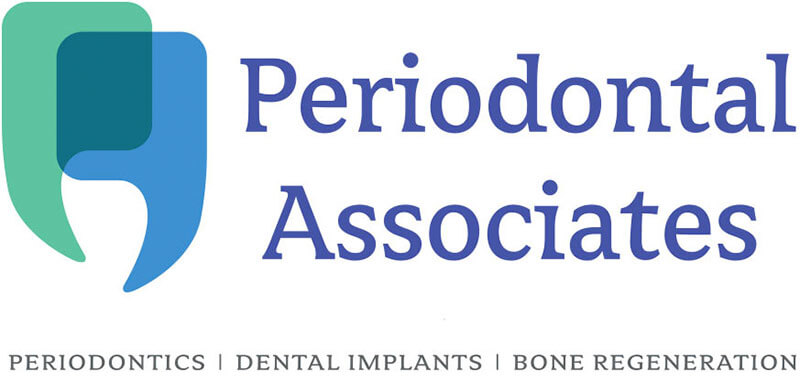An important part of your oral health, in addition to the condition of your teeth, is your periodontal (gum) health. And because the health of your teeth and gums go hand in hand, it’s equally important to monitor and treat periodontal disease.
Periodontal (gum) disease is an infection of the gums that can become serious when not treated. Your gums are there to support your teeth. When gum disease goes untreated, the disease can progress into the jawbone. Your gums and bone may fail to sufficiently hold your teeth, leading to loosening or loss of teeth. The infection can also spread throughout your body and negatively impact your overall health.
The key to treating gum disease is early detection and treatment. Look out for these 4 signs that indicate you have periodontal disease and contact your dentist or periodontist if you notice any of these symptoms.
1. Bleeding gums.
If you notice blood when you brush or floss your teeth, it is not normal. Unless you are flossing for the first time or you accidentally brushed too hard, bleeding is a sign of gum disease. When your gums are infected and swollen, the act of brushing and flossing can cause infected pockets to open up and bleed.
2. Sore gums.
Do your gums hurt when you brush or floss? Sore, painful gums are a sign of infection due to gum disease. Regularly brushing your teeth once or twice a day should not be painful when your gums are healthy. If you’ve gone a while without brushing and then feel pain when you do, you may have a case of gum disease.
3. Receding gums or loose teeth.
Look at your teeth and gum line in the mirror. Do you see places where the gums are receding or have pulled back from your teeth? You will most likely see a ridge or line on your teeth where the gums used to be, but now part of the tooth root below that line is exposed. This is a sign that the gums are not as healthy as they should be and may be infected. Another sign is loose permanent teeth, which indicates that the gums are not sufficiently supporting them due to gum disease.
4. Sensitive teeth.
The exposed part of the tooth below the original gum line can be very sensitive once the gums recede. The root portion of the tooth does not have the same hard enamel coating the crown portion of your tooth has that prevents sensitivity. Sensitivity is the result of porous tooth material that leads to the nerve inside of the tooth. Without enamel, the nerve is easily exposed to cold, heat, air, and sugar, which can cause pain.
Treatment
If you have any of the above symptoms of periodontal disease, there are treatments to help. Your periodontist may perform or recommend any of the following:
- Deep cleaning of your gums below the gum line.
- Antibiotic gel.
- Antiseptic chips or antibiotic microspheres that release antibiotics directly into the gums.
- Enzyme suppressants that block the enzymes that break down gum tissue.
- Oral antibiotics.
- Surgery (gum graft or flap surgery).
The treatment method or combination of methods will depend on the severity of the gum disease and how the disease responds to treatment.
Prevention
Keeping up with proper oral care at home can help to prevent gum disease. Dentists recommend brushing and flossing twice a day and visiting your dentist for routine cleanings and examinations every 6 months.
If You Symptoms of Gum Disease, Periodontal Associates Can Help
Your dentist may be able to treat your gum disease, but a periodontist specializes in the field of gum health. Depending on the severity of your gum disease, your dentist may refer you to a periodontist for in-depth treatment. Periodontal Associates in Framingham and Newton Centre, MA specialize in the treatment and health of the supporting structures for your teeth, including gums and jaw bone. We offer a full range of periodontal services.
Call Periodontal Associates today at (508) 875-6185 to make an appointment at our Framingham office or (617) 964-6185 for our Newton office. You can also request an appointment at either office. We look forward to helping restore your periodontal health.

